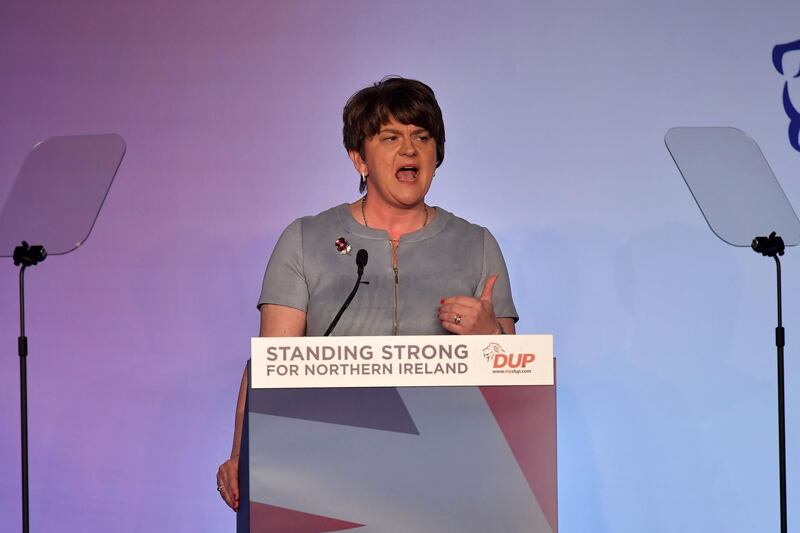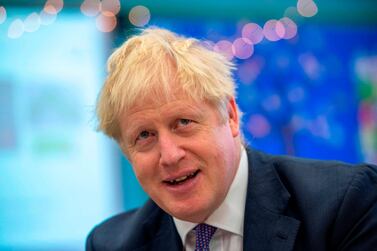The Northern Ireland allies of UK Prime Minister Boris Johnson have called on him to renegotiate his Brexit deal or they will keep rejecting it.
The pro-Brexit Democratic Unionist Party, which has 10 MPs, says regulatory and customs borders between Northern Ireland and the rest of the United Kingdom are not acceptable.
In theory, the Mr Johnson’s government is in a confidence-and-supply deal with the DUP to increase its chances of passing its legislation through parliament. But the DUP failed to support Mr Johnson’s amended withdrawal agreement with the European Union last week despite the removal of the controversial backstop, the insurance policy to ensure a soft border on the island of Ireland.
The backstop was the main reason why the DUP rejected the previous Brexit deal offered by Mr Johnson’s predecessor Theresa May.
"We will not give support to the government when we believe they are fundamentally wrong and acting in a way that is detrimental to Northern Ireland and taking us in the wrong direction," Mrs Foster told the party’s conference in Belfast.
Mr Johnson needs the support of the DUP because some MPs from his ruling Conservative Party have defected because of the government’s Brexit stance.
Mrs Foster said the DUP had sent the prime minister "to the naughty step in Parliament twice in the last week.”
"Let me say clearly from this platform today that we want to support a deal that works for the whole of the United Kingdom and which does not leave Northern Ireland behind," she said. "But without change, we will not vote for the prime minister's agreement."
The UK is supposed to leave the EU on October 31 after its original March 29 departure date was postponed twice. It has asked for a three-month extension as Mr Johnson struggles to get parliamentary support for the divorce deal he agreed with the bloc.
Mr Johnson is pushing for an election this December but has failed to convince opposition parties to back such a move.







